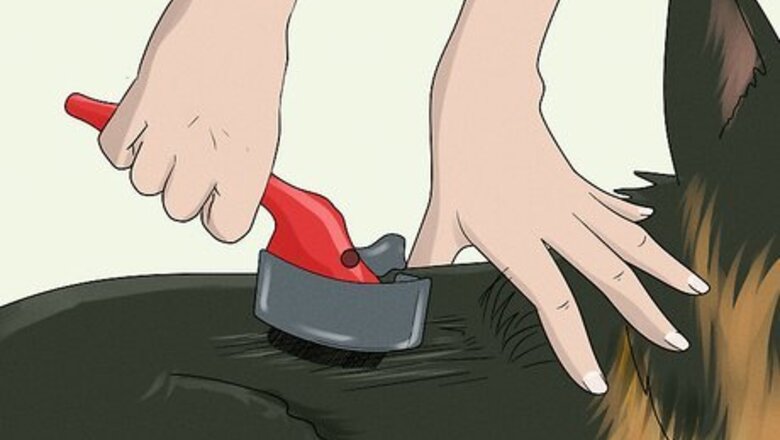
views
Brushing Your Dog’s Coat
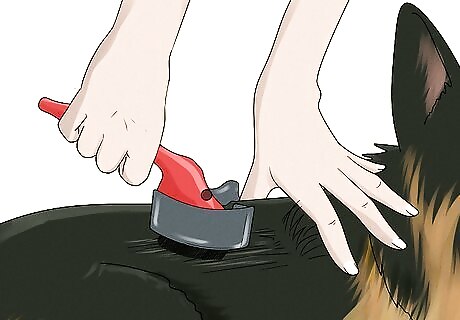
Brush your German Shepherd’s hair daily with a slicker brush. Start at the top of your dog’s neck and brush to their tail, always going along with the grain of their fur. Keep doing this all over his back and sides until there isn’t much fur coming away on the brush. Then, brush their haunches, tail, rear end, belly, chest, and legs. Always go with the grain. The slicker brush helps remove excess hair while distributing natural oils throughout the coat. You may have to stop periodically to remove excess hair from the slicker brush. Be gentle while brushing their belly—it’s a little sensitive, so don’t push down too hard.Did You Know? Your German Shepherd will lose their coat every fall and spring. During these times, they’ll need extra brushing and maybe an extra bath to keep their coat healthy. You may also hear this referred to as your dog “blowing” their coat.
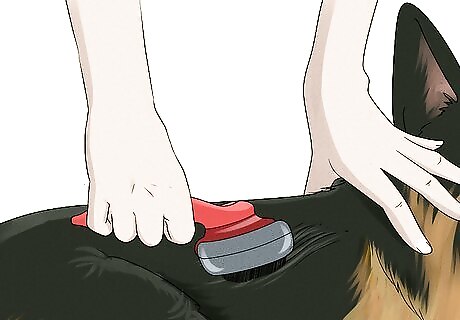
Go over your dog’s coat with a bristle brush after using the slicker brush. The bristle brush will help stimulate their skin, and it’ll help smooth their fur so it looks glossy. Brush along with the grain on their back, sides, haunches, chest, and belly. You’re probably noticing that a lot of hair has accumulated! You can sweep it all up with a vacuum when you’re done, or keep a small trash bin next to you to deposit hair in as you go. Try brushing your dog at the same time every day so they get used to it. For example, you could brush them while they eat every morning, or perhaps you could do it after their afternoon walk every day.
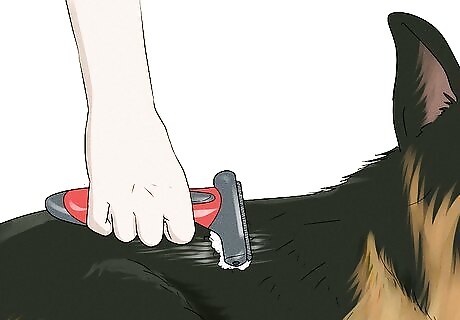
Use a shedding rake once a week to help control your dog’s undercoat. Use a metal shedding rake for the best results. Brush against the grain along your German Shepherd’s back, haunches, and tail, but don’t use it on their stomach, chest, or legs. During the summer when your pup is shedding a lot, you can use this tool 2-3 times a week. The shedding rake cuts underneath the top layer of fur and removes all the loose fur in the undercoat. The undercoat is what can cause your dog’s coat to look gray and dim; removing it helps it stay shiny.
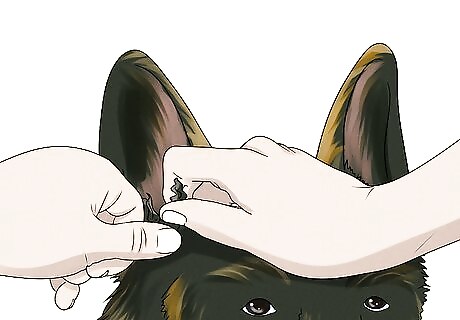
Detangle and treat matted fur to prevent skin and health problems. Matted fur can cause skin irritation and can even lead to infection. Pay particular attention to the area behind your pup’s ears, their legs, and around their rear end. If you notice a mat, try to gently brush it out with a slicker brush. If that doesn’t work, visit your vet or groomer to have the mat clipped away safely. The best way to deal with matted fur is to prevent it by regularly brushing your dog. Alternatively, you can take your German Shepherd to a professional groomer.
Giving Your German Shepherd a Bath
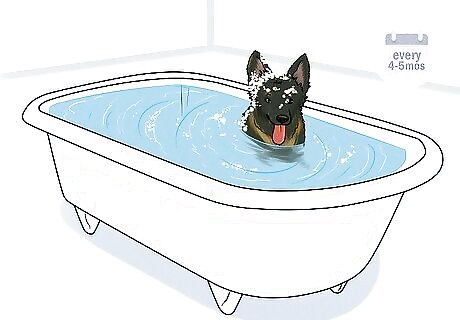
Bathe your German Shepherd once every 4-5 months. Bathing your dog too often will strip away their natural oils, causing their skin and fur to get dry and irritated. In general, they shouldn’t need a bath more than 2-3 times a year. Brushing your dog’s coat regularly will help keep them clean, too. Make sure daily brushing is a part of your German Shepherd’s grooming routine. Of course, there are exceptions to the rule. If your pup gets exceptionally dirty or starts to smell, you should absolutely give them a bath! If they’re too dirty to hug or let onto the couch, they probably need to be bathed.
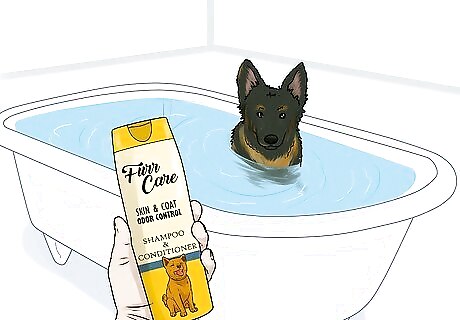
Use a dog-specific combination shampoo and conditioner for your pup. Look for a product that is paraben-free to avoid drying out your dog’s coat. While your German Shepherd doesn’t need to be bathed frequently, you do want the shampoo you use to be gentle so it doesn’t strip away the natural oils. The combined conditioner promote a shiny, glossy coat. Don’t use human shampoo on your German Shepherd. It’ll be too acidic for their skin and could really irritate it! Oatmeal is a great ingredient to look for. It helps moisturize your dog’s skin and is gentle on their fur.
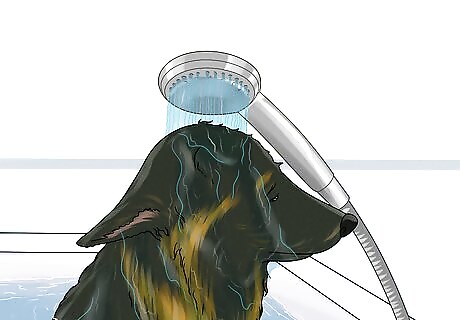
Wet your German Shepherd’s fur with warm water in the tub. You may want to put cotton balls in their ears before you begin to keep water out. Then take a few minutes to run water over their back, chest, and sides, until it has saturated through to their skin. This is easiest if you have a detachable showerhead. If you don’t have one, try using a large plastic cup to pour water over them. Put a non-slip mat on the bottom of the shower so your dog doesn’t accidentally fall. If your pup is particularly messy, you may want to bathe them outdoors.
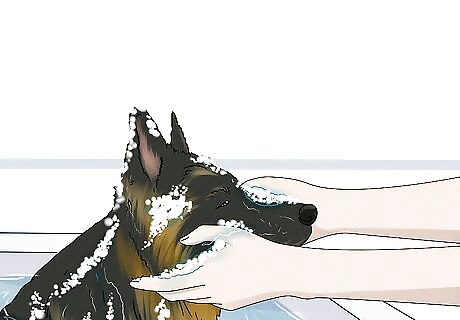
Massage the shampoo into their fur and then rinse it out. Use gentle, circular motions to lather up the shampoo and work it through your dog’s coat. Work from the neck back to the tail, and don’t forget to get their sides, haunches, belly, chest, legs, and tail. Rinse them off with warm water until all the suds are gone. Be careful to not get shampoo in your dog’s eyes.
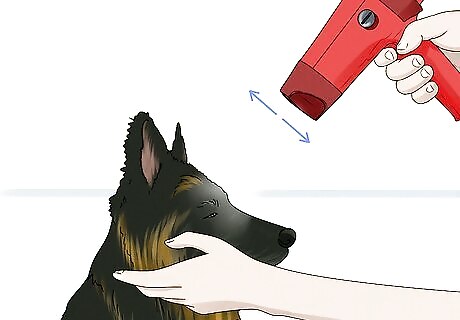
Blow-dry your dog’s hair with a back and forth motion to make it shine. Instead of letting your German Shepherd’s hair air-dry, use a blowdryer. Set it to cool or warm air on a low setting and run it back and forth over their coat. You could also brush through their fur as you dry it to make it even smoother. If your dog hates the sound of the blowdryer, try introducing it to them when you give them a treat. Let them smell it, turn it on at a distance so they can see it, and work on gradually getting them used to it so you can dry them after baths.
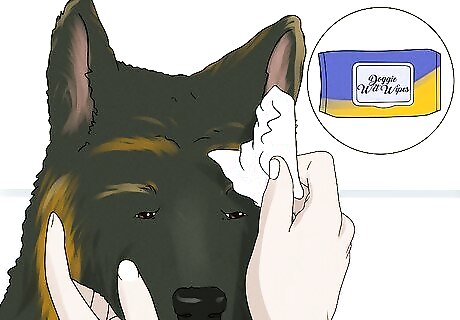
Spot-clean your pup with doggie wet wipes between baths. It’s no secret that dogs tend to get smelly. To combat that wet-dog scent, wipe down their paws, rear end, and even their entire body with a dog-specific wet wipe. Be sure to keep the wipes away from your dog’s eyes. They could potentially irritate them.
Treating Common Skin Conditions
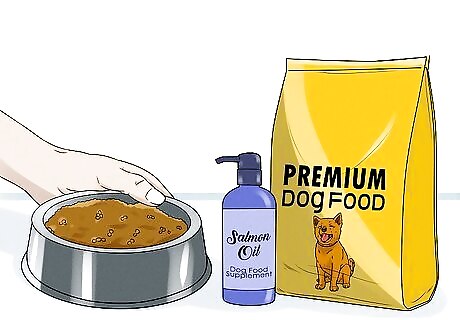
Prevent dry skin and a dull coat by feeding your pup a balanced diet. If your dog isn’t getting the nutrients they need, their coat may look a bit lackluster. Look for a formula that contains protein (chicken, lamb, fish, eggs), fat, carbohydrates (corn, rice, wheat), vitamins, and minerals. For a really healthy and shiny coat, try adding 1 to 2 tablespoons (15 to 30 mL) of salmon oil to their food every other day. Both wet and dry food are good for your dog. Wet food has the benefit of adding some moisture to your dog’s diet, which can be helpful if they don’t drink enough water. Dry food is less expensive and more calorie-dense. Make sure your pup always has fresh water available. Dehydration can not only lead to dull skin and fur, but it can also be really dangerous.
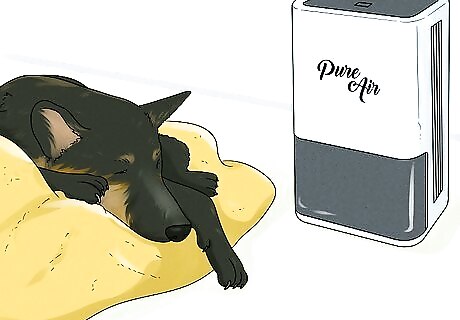
Run a humidifier to help soothe your dog’s skin if it’s really dry. Especially during the winter months, your German Shepherd might be more prone to dry skin. If you notice visible dandruff or see your dog scratching themselves or rubbing against furniture more than usual, that can be a sign of dry skin. Keep a humidifier in whatever room they sleep in to help them be more comfortable. This could be good for your skin, too! Lots of people experience dry skin in the wintertime and could benefit from a humidifier.
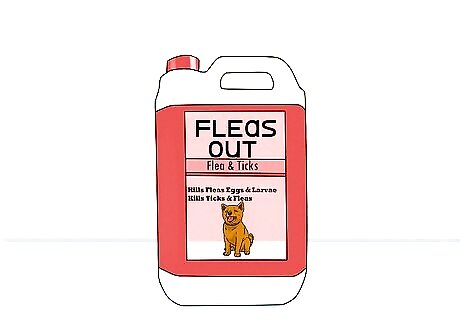
Treat your dog for fleas to prevent dermatitis and itchy skin. Fleas are one of the more common causes of itchy skin, which can affect your German Shepherd’s coat due to excessive scratching and biting. You can buy preventative products from the pet store or get them from your vet. You may also need to treat your yard for fleas if your dog spends a lot of time outdoors.
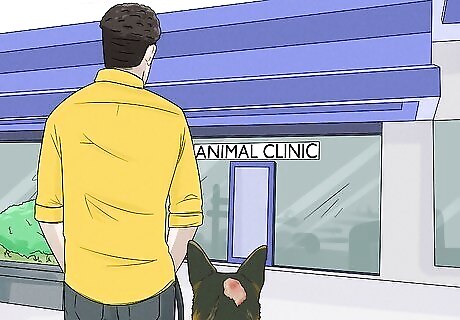
Take your dog to the vet if their coat is thinning, balding, or seems irritated. There are a lot of different things that could cause your German Shepherd’s coat to turn dull or start falling out, from allergies to fleas to other medical conditions. The best way to treat skin problems is to find out the root cause, and then treat that while helping manage the symptoms. Just like humans, dogs can have very sensitive skin. Their skin can also indicate if there’s a more serious issue, like a nutritional imbalance or hypothyroidism.
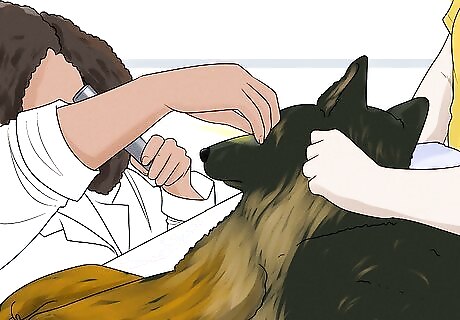
Have your pup tested and treated for ringworm. Ringworm can cause hair loss, inflammation, and scaly patches to develop on your dog. Because skin problems can be caused by a myriad of conditions, your vet is the best person to tell you what’s going on and prescribe a treatment plan. Your vet may give you a topical anti-fungal cream or shampoo to use on your German Shepherd. If you have multiple pets, keep them separated until the one with ringworm has healed. It can spread if they come into contact with each other.











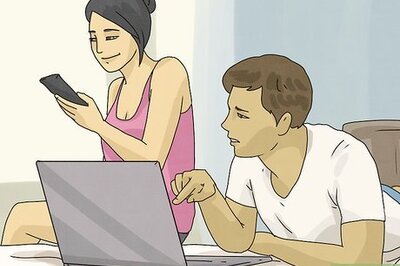


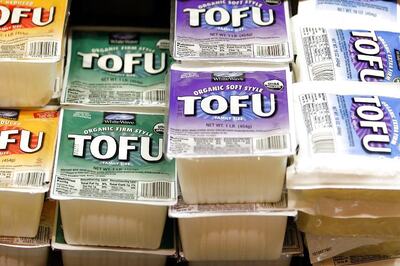





Comments
0 comment